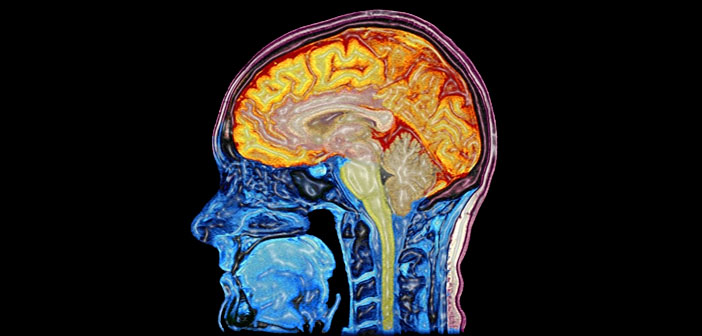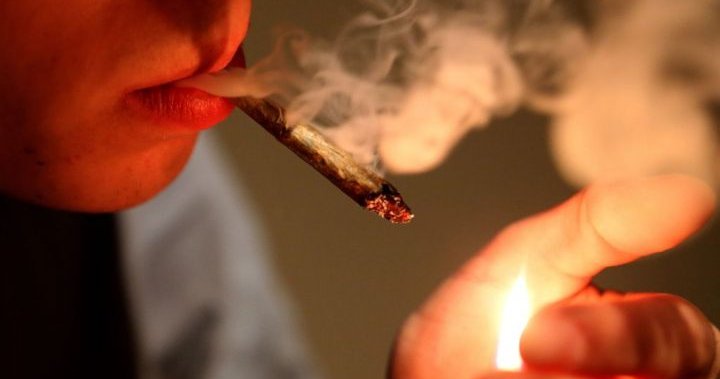Cannabis addiction*
By Patrick Cain | Global News | Aug 17 2019
Cannabis has a reputation for not being physically addictive, but that’s not always the case. One woman spoke to Global News about her chronic cannabis use, and the condition she developed because of it.
“When I smoke a joint, one is never enough. I want to smoke another and another,” explains Courtney Head of Fort McMurray, Alta.
Head, now 31, started smoking cannabis in her mid-20s.
“I tried it and I thought it was the best thing ever,” she said.
“It’s relaxing, it’s this, it’s that. I kind of started smoking it socially — it wasn’t an everyday use kind of thing — but over time, I guess the more I smoked, the more I wanted to smoke.”
Over time, her consumption hit seven or eight grams every two days —
“about 10 joints a day, depending on how big they are” — and she was diagnosed with CHS (Cannabinoid Hyperemesis Syndrome), a condition that afflicts some heavy users with pain, constant nausea and the threat of dangerous levels of dehydration.
Eventually, Head decided that while weed isn’t addictive for the people around her, it is for her.
“I first started thinking of it as an addiction when I realized that I needed it to eat,” she says.
“I needed it to just function normally. I started planning my daily activities around it. I couldn’t really travel. I had to plan everything around my cannabis. I had to make sure I had a certain amount with me at all times, and if I didn’t then I couldn’t go."
“It started affecting my relationships with my family, it started affecting relationships with my friends, it started affecting my employment. I missed a lot of work over the last five years due to CHS.”
The vast majority of cannabis users enjoy it — or use it as medicine — without real trouble.
“I would always ask myself: ‘Why can all my friends smoke weed?’ Or ‘why can this person smoke weed and I can’t?'” Head says.
For about one user in 10, cannabis use can spiral into a real addiction
“I think it’s been a popular misconception that cannabis is not physically addicting,” says Calgary-based addiction psychologist Jonathan Stea.
“I find that belief quite frustrating. I find myself trying to dispel that narrative quite often."
“People try to contrast cannabis being psychologically addicting versus physically addicting, but that’s sort of a false dichotomy. We have an endocannabinoid system, and it’s very well-established that cannabis withdrawal can occur.”
"About 10 per cent of cannabis users will develop an addiction," Stea says.
“Other substances, such as alcohol, cocaine, nicotine and heroin, or opioids, have a higher addictive potential than cannabis,” he says.
“Cannabis addiction is a lesser harm than some of the other addictions, for sure. As a clinical psychologist, I’d rather be helping someone manage a cannabis addiction than an alcohol addiction or a heroin addiction because I’m less scared they’re going to die. That said, at the individual level, when somebody is managing a cannabis addiction, that’s not to be taken lightly, either.”
Danielle, a Halifax university student who didn’t want to be fully identified for privacy reasons, was forced to quit cannabis, which she says she was addicted to, after she got CHS.
“I eventually ended up in the ER with just extreme amounts of nausea,” she said.
“I couldn’t hold down food or water. One of the doctors finally brought up CHS to me and said cannabis can cause this.
“I didn’t believe her. I went home from the ER and smoked again and I just felt worse. That’s when I looked it up and finally came to terms with it.”
She had been smoking about a gram a day to cope with academic stress but eventually found it hard to stop.
“In my eyes, addiction is when you want to stop using a substance but you find that you’re unable to,” she says.
“There were definitely times that I found my cannabis use to be problematic, that I wasn’t comfortable with how much I was smoking. When I would try to not smoke any more, I would get anxious, I wouldn’t get hungry any more, and it was just easier to keep smoking instead.”
Like Head, she’s decided that weed creates problems for her that don’t seem to exist for others.
Friends have asked if they should avoid smoking around her, but she finds that isn’t a problem.
“It’s fine to be around people smoking. Because, honestly, as much as I found I was quite addicted to it, once I got CHS, I knew I had to stop. I felt so awful that all I wanted to do was feel better. It was honestly the perfect way to quit weed: my body pretty much didn’t give me a choice in it.”
Both women said they had believed that cannabis couldn’t be addictive, until they found out otherwise through personal experience.
“Nearly evertone I’ve talked to over the years felt the same way: weed isn’t addictive,” Head says.
“For most, it’s not. They can just drop it just like that. They can go days and days. It doesn’t affect them at all.”
The idea that cannabis can be addictive in the traditional sense seems to have gained mainstream acceptance in the last decade. As recently as 2010, former U.S. surgeon-general Jocelyn Elders said that “
Marijuana is not addictive, not physically addictive anyway.”
In the same year, advocates of California’s Proposition 19, which would have legalized recreational cannabis there, argued that
“Cannabis is not physically addictive,” a claim that was widely criticised.
Stea, who favours legalization, sees it as an example of legalization advocates overplaying their arguments.
“I think cannabis in general is a very polarizing topic,” he says.
Cannabis, he argues, is a complex plant with both benefits and potential problems.
“I think that where the myth that cannabis is not addictive comes from is probably on the side of cannabis enthusiasts who don’t want to acknowledge that reality.”
A survey of cannabis buyers in Washington State showed that only 17 per cent thought that cannabis could be addictive, almost the same number that reported that they themselves had had trouble stopping. Users over 50 were more likely to say that cannabis could not be addictive, while those 18-29 were more likely to say that it could be.
“I think there are misconceptions about what addiction can look like with cannabis use,” Stea says.
“Sometimes when people think of addiction they think of the most severe opioid addiction they can imagine, or the most severe methamphetamine addiction they can imagine. And that’s not what a cannabis addiction looks like.”
Why are some more vulnerable to cannabis addiction than others? It may be partly genetic.
“As far as we know, it’s a very complex topic about why someone develops an addiction,” Stea says.
“It’s an interaction of many environmental and genetic risk factors for someone to develop an addiction.”
"Mental health disorders, heavy use and a history of use in adolescence are all risk factors," he says.
Once Head quit, she had to endure withdrawal
“I’ve had insomnia for weeks on end when I stopped smoking weed. That’s one of the biggest withdrawal symptoms I’ve found, is sleep. Even body temperature. I’d wake up in pools of sweat in the middle of the night. My body is just wet with sweat. That would last for a couple of weeks. It’s almost like my body is detoxing itself.”
"The misery of withdrawal can push people back into using," Stea says.
“It’s more akin to a nicotine withdrawal, with its associated anxiety and irritability, as opposed to the potential fatality of an alcohol withdrawal, with seizures and delirium tremens, or the very debilitating, flu-like nature of an opioid withdrawal,” he explains.
Some end up trapped in a thankless cycle of recovering from CHS, then being prodded by the addiction to start using again, which brings back the CHS, and so forth in a cycle that’s hard to break.
Legalization hasn’t made much difference so far to what he sees clinically, Stea says, but it may take a few years to tell properly.
“I happen to believe legalization is a good thing,” he says.
“I happen to treat cannabis-related harms. I see some of the negative aspects of cannabis. But at a population level, I believe legalization is a good thing in general.”
Having gone through withdrawal, Head says she’s feeling much better.
“My sleep is great, my appetite is back to normal, for the most part. Sleep is starting to level off right now,” she says.
“Even today, it still crosses my mind. Oh, you know, it would be nice to smoke up, or it would be nice to hang out and relax and smoke a joint at the end of a work day, and I have to remind myself that no, this is an addiction.”
*From the article here:
Lots of people think cannabis can't be physically addictive. So did two people we talked to — until experience taught them otherwise.

globalnews.ca
C
annabis absolutely WRECKED my life when I was in my 20s. I lost everything, and believe me, it wasn't worth it. -pb



